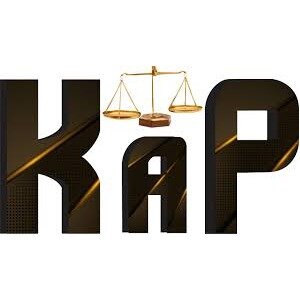Best Hiring & Firing Lawyers in Ibadan
Share your needs with us, get contacted by law firms.
Free. Takes 2 min.
List of the best lawyers in Ibadan, Nigeria
About Hiring & Firing Law in Ibadan, Nigeria
Hiring and firing laws in Ibadan, Nigeria, are governed by various national regulations and local customs. These laws are a subset of labor law in Nigeria and are designed to protect both employers and employees to ensure fair treatment in the workplace. Key pieces of legislation, such as the Labor Act and the Employment Act, set guidelines for employment contracts, termination procedures, and employees' rights. Understanding these laws is crucial for maintaining compliance and fostering an equitable working environment.
Why You May Need a Lawyer
Legal assistance might be necessary in several situations involving hiring and firing in Ibadan. Common scenarios include wrongful termination claims, disputes over severance packages, allegations of discrimination during hiring or termination, and breaches of employment contract terms. A lawyer can provide guidance on these issues, helping to navigate the complexities of Nigerian labor law, assess the merits of a case, and represent the interests of their clients in negotiations or litigation.
Local Laws Overview
Key aspects of local laws in Ibadan relevant to hiring and firing include:
- Employment Contracts: All employment relationships should be documented through a contract that outlines the terms and conditions of employment, including salary, duties, and termination procedures.
- Termination Notice: Employers are generally required to provide notice or payment in lieu of notice when terminating an employee, with the length depending on the employee's contract and duration of service.
- Anti-discrimination Laws: Nigerian law prohibits discrimination based on gender, religion, ethnicity, and other personal characteristics during the hiring and firing processes.
- Severance and Benefits: Employees may be entitled to severance pay and other benefits upon termination, depending on the terms of their contract and years of service.
- Dispute Resolution: Many employment disputes are resolved through mediation or arbitration, promoting a less adversarial approach than litigation.
Frequently Asked Questions
What constitutes a legal employment contract in Ibadan?
An employment contract in Ibadan must clearly outline the job role, salary, work hours, and other essential terms agreed upon by the employer and employee. Both parties should sign it to be considered legally binding.
Can an employee be dismissed without notice?
Typically, an employee cannot be dismissed without notice unless there is a justifiable cause, such as gross misconduct. Otherwise, the appropriate notice period must be observed as stipulated in the contract.
Are casual workers entitled to the same protections as full-time employees?
Casual workers have fewer protections than full-time employees, but they are still entitled to certain rights, such as a fair wage and safe working conditions, according to Nigerian labor laws.
How can an employee contest an unfair dismissal?
An employee can contest an unfair dismissal by filing a complaint with the Industrial Arbitration Panel or a court of competent jurisdiction, presenting evidence of unfair treatment or breach of contract.
What is the role of the Labor Inspection Department?
The Labor Inspection Department ensures compliance with labor laws, investigating complaints regarding working conditions, pay, and unfair dismissal.
How does the employee welfare act apply in Ibadan?
The employee welfare act mandates provisions for the health and safety of workers, compensation for injuries sustained at work, and retirement benefits.
What are the legal grounds for dismissing an employee?
Legal grounds for dismissal can include redundancy, misconduct, poor performance, or breach of contract. Employers must follow due process and provide evidence supporting these grounds.
What should be included in a severance package?
A severance package may include payment for unused leave, gratuity based on years of service, and possibly other benefits as agreed in the employment contract or company policy.
Are there any specific hiring regulations for expatriates?
Yes, employing expatriates involves compliance with immigration and labor laws, including securing work permits and adhering to quotas that ensure employment opportunities for locals.
How can I protect my rights during the hiring process?
Understand your rights by thoroughly reviewing any employment offer and contract, seeking clarification on ambiguous terms and consulting a lawyer if you suspect any discriminatory practices.
Additional Resources
For those seeking further assistance regarding hiring and firing in Ibadan, consider consulting the following resources:
- Federal Ministry of Labour and Employment: The ministry provides guidelines, mediates labor disputes, and ensures compliance with employment laws.
- National Industrial Court of Nigeria: Responsible for adjudicating labor-related disputes and unfair dismissal cases.
- Nigerian Bar Association (Ibadan Branch): Offers legal resources and can connect individuals with labor law specialists.
- Lagos State Ministry of Employment and Wealth Creation: Offers additional insights and resources, despite being based in another region.
Next Steps
If you require legal assistance with hiring or firing matters in Ibadan:
- Document all relevant information and correspondences carefully, maintaining a reliable record of events.
- Consult with a lawyer specializing in labor law to understand your rights and obligations fully.
- Consider alternative dispute resolution methods if litigation seems too adversarial or costly.
- Contact local labor offices or trade unions for additional support and resources.
Legal issues around hiring and firing can be complex, but with the right guidance, you can navigate them effectively to protect your interests.
Lawzana helps you find the best lawyers and law firms in Ibadan through a curated and pre-screened list of qualified legal professionals. Our platform offers rankings and detailed profiles of attorneys and law firms, allowing you to compare based on practice areas, including Hiring & Firing, experience, and client feedback.
Each profile includes a description of the firm's areas of practice, client reviews, team members and partners, year of establishment, spoken languages, office locations, contact information, social media presence, and any published articles or resources. Most firms on our platform speak English and are experienced in both local and international legal matters.
Get a quote from top-rated law firms in Ibadan, Nigeria — quickly, securely, and without unnecessary hassle.
Disclaimer:
The information provided on this page is for general informational purposes only and does not constitute legal advice. While we strive to ensure the accuracy and relevance of the content, legal information may change over time, and interpretations of the law can vary. You should always consult with a qualified legal professional for advice specific to your situation.
We disclaim all liability for actions taken or not taken based on the content of this page. If you believe any information is incorrect or outdated, please contact us, and we will review and update it where appropriate.














